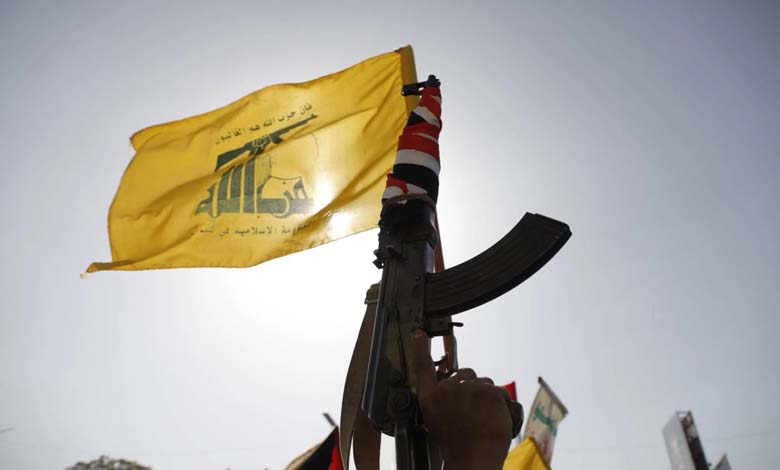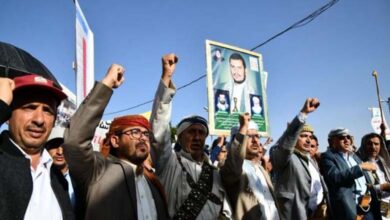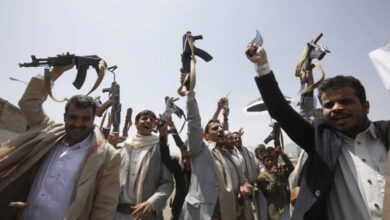Disarming Hezbollah is closer than Ever

The Lebanese president affirms that disarming the Iran-backed party will happen through negotiation, not force.
Disarming Hezbollah—once considered unrealistic—now appears more feasible than ever, due to increasing U.S. pressure on Lebanon’s new leadership and the heavy losses suffered by the group in its recent war with Israel. Lebanese President Joseph Aoun stated that the disarmament process would be conducted through negotiations, within the framework of a national defense strategy, not through force.
-
Dismantling of Most of Hezbollah’s Military Sites in Lebanon: Flexibility or Manoeuvre?
-
The future of Hezbollah’s weapons is open for discussion: Under conditions
Experts say that the outcome of the nuclear talks between Iran and the U.S., which began Saturday, could significantly impact the future of Hezbollah’s arsenal, which before the latest conflict exceeded that of the Lebanese army.
David Wood, a Lebanon analyst at the International Crisis Group, noted that “the impact of the war has clearly changed the situation on the ground in Lebanon,” suggesting that “Hezbollah may move toward disarmament, and might even voluntarily participate in the process instead of resisting it.”
A ceasefire deal reached on November 27 ended a confrontation between Hezbollah and Israel that lasted over a year and escalated into a two-month war, significantly weakening the Iran-backed group with battlefield losses, equipment destruction, and the deaths of senior commanders.
-
Hamas Hezbollah and Houthis: Netanyahu Unveils His Vision to End the Gaza War
-
Mossad Reveals How the Pager Explosions Shifted the Course of the War against Hezbollah
Nevertheless, the Israeli army continues to carry out near-daily airstrikes in southern Lebanon.
The agreement called for Hezbollah fighters to withdraw south of the Litani River and dismantle any military infrastructure in that area. Hezbollah maintains that the agreement does not apply to other parts of the country.
A source close to Hezbollah, speaking anonymously, said Saturday that most of the group’s military positions south of the Litani are now under the control of the Lebanese army, which has increased its presence in the area.
During a visit to Lebanon this month, U.S. Deputy Envoy to the Middle East Morgan Ortagus stated that Washington continues to pressure the Lebanese government to ensure “full implementation of the ceasefire, including the disarmament of Hezbollah and all militias,” adding that this should happen “as soon as possible.”
-
The Secrets of Funding: Israel Warns of Smuggling Operations for Hezbollah
-
The Shadow Game: How Israel Penetrated the Heart of Hezbollah before Hassan Nasrallah’s Assassination
Joseph Aoun reaffirmed his commitment to centralizing all weapons under state control, while emphasizing “the importance of dialogue” to achieve this.
In an interview with Al Jazeera, he said the Lebanese government has decided that weapons must be in the hands of the state alone, though discussions are underway on how to implement this. He added that these are being conducted in the form of “bilateral dialogue” between the presidency and Hezbollah.
However, Hanin Ghaddar, a researcher at the Washington Institute, believes that “confrontation with Hezbollah is inevitable,” stating that “the only alternative to not forcibly disarming the Iran-backed group would be for Israel to do the job.”
-
From Basta to Bazourieh: Hezbollah Strongholds “Ignite” Lebanon
-
Israel Threatens Hezbollah Leaders: Defeating the Party with the Weapon of “Chaos”
Former head of southern intelligence Brigadier General Ali Chahrour said that “Hezbollah has suffered a setback, and it is certainly not in their interest to enter any war or oppose the state.”
He added: “Iran is also heading toward negotiations, which will impact the entire axis in the region,” referring to the so-called “resistance axis” led by Tehran.
Several Hezbollah officials have recently expressed readiness for dialogue on a national defense strategy, including discussions on the future of their weapons, though not the handover of them.
Ghaddar says one faction, led by figures like new Secretary General Naim Qassem and parliamentary bloc leader Mohammad Raad, is trying to “buy time,” while another wing wants to take bolder steps.
-
After his death… Who is Salim Ayyash, Hezbollah member convicted of killing Rafic Hariri?
-
Does Hezbollah’s Defeat Mark the End of the Iranian Era?
However, she argues that any internal divisions within the party, if they exist, reflect differences in survival strategies, not a genuine willingness to hand over weapons.
Hezbollah has consistently claimed its arms are essential for defending Lebanon against Israeli “aggression.” Experts say Israel’s insistence on retaining control over five “strategic” hilltops strengthens this narrative.
Chahrour stressed that “the Israelis are certainly giving Hezbollah an excuse to hold on to its weapons” by not complying with the ceasefire deal.
-
Hezbollah and the Death of Nasrallah… the End of an Era?
-
Israel’s Attempt to Break ‘Al-Qard Al-Hassan’: Cutting Hezbollah’s Financial Channels
According to the source close to Hezbollah, “the Lebanese army has no military capacity to defend the south against an Israeli invasion.” He added, “The Americans’ insistence that the army destroy the resistance’s missiles instead of keeping them is further proof that the U.S. doesn’t want the Lebanese army to be strong—or even to have the potential to stand against Israel.”
Professor and researcher Karim Bitar likened the issue to the classic “chicken or egg” dilemma.
He believes the most likely scenario is for Hezbollah to hand over some of its heavy weapons to the army, while stressing that it is not responsible for weapons held by loyal civilians who are not official members.
-
Tense Atmosphere in Beirut Due to Displaced People from Hezbollah Strongholds
-
Hezbollah relies on new leadership whose members are unknown to Israel
Still, he insists that the outcome will largely depend “on the U.S.-Iran negotiations that have just started,” explaining that “without a green light from the Iranians, I doubt Hezbollah would voluntarily hand over its weapons to the army—even if they were offered to form an independent battalion within it.”
Hezbollah remains the only armed faction to retain its weapons after Lebanon’s civil war ended in 1990, under the banner of “resistance” against Israel.
Potential solutions, according to David Wood, include the complete dismantling of Hezbollah’s military structure or integrating its weapons into the army, with individual fighters absorbed into the Lebanese Armed Forces. But he emphasized that “the safest path” to addressing the disarmament issue is “taking the necessary time.”
Wood concluded that “Iran may seek to trade support for its regional allies, including Hezbollah, in exchange for concessions in negotiations with the United States.”












